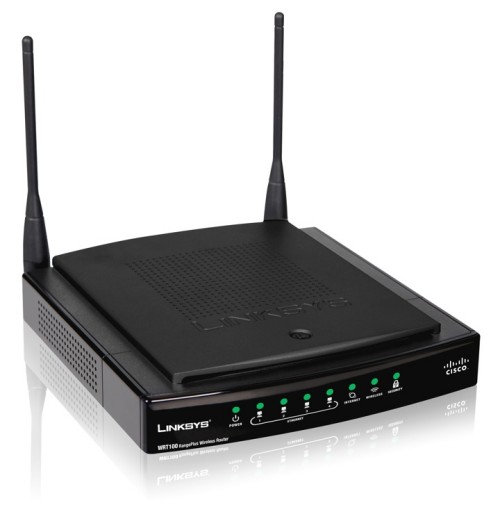 Wi-Fi wireless Internet connectivity has become nearly ubiquitous. Whether you're at home, in a coffee shop, or even on some commercial airliners, you can get online with a Wi-Fi-equipped laptop, smart phone or portable game machine.
Wi-Fi wireless Internet connectivity has become nearly ubiquitous. Whether you're at home, in a coffee shop, or even on some commercial airliners, you can get online with a Wi-Fi-equipped laptop, smart phone or portable game machine.Now, Wi-Fi is making its way into your car. A small California company, Autonet Mobile, has teamed up with Chrysler and others to sell a service that floods any brand or model of car or truck with Wi-Fi Internet connectivity that can be used by multiple passengers and devices simultaneously. It's a dealer-installed option on Chrysler vehicles, but Chrysler dealers, and some independent auto electronic shops, will install it on any brand of car for a fee.
The system works via a special wireless router, mounted in the trunk or rear cargo area, that draws Internet connectivity from cellphone towers and then converts it into an in-car Wi-Fi signal with a range of 100 feet. This router looks like a military device, because it is ruggedized to survive jolts and vibrations, and is shielded to avoid interference with the car's electronics or with cellphone calls.
As long as they have built-in Wi-Fi, the laptops and smart phones used in the car don't need any add-on hardware or software to use Autonet. To them, it looks like any other Wi-Fi signal. And no special car antenna is needed; the router uses its own large antennas.
Personal Technology Columnist Walt Mossberg talks about San Francisco-based Autonet Mobile's Wi-Fi hookup in your car. (Nov. 11)
I've been testing Autonet Mobile in a rented Saturn Vue SUV in Washington, D.C., and its suburbs, and found it worked well for most basic Internet tasks like email and Web surfing. The router turns on when the car does, and the Wi-Fi signal shows up about 30 seconds later. However, Autonet is relatively pokey. It's too slow to be reliable for streaming video longer than brief YouTube clips, or for smooth video chatting.
Perhaps the biggest downside of in-car Wi-Fi is that it provides one more potential distraction for drivers. The company says the service is only for passengers, not drivers, but there's no technical barrier to a driver using it.
Of course, drivers already can court danger this way by using cellphone wireless connectivity on a laptop, iPhone, BlackBerry or other connected device. And that raises another question: Since you can already connect to the Internet from a car with a smart phone or a cellular data card for a laptop, why would you want Autonet?
There are three reasons. First, cellular Internet access is typically tied to a single device at a time. But Autonet's Wi-Fi service works just like Wi-Fi in your house: Multiple people with multiple devices can use it at the same time. In fact, the company envisions that the service's primary use will be to allow children in the back seat to use laptops for social networking, online games or homework; and multiple adult passengers to conduct online business or research routes and destinations.
Second, the monthly fees can be lower, at least for laptops. A typical cellular data card for a single laptop costs $60 a month. But Autonet's service starts at $29 a month for the entire car, regardless of how many devices are being used. A premium plan costs $59. The plans differ by how much data you are allowed to consume monthly. And Autonet requires no special laptop cards or software.
Lastly, the company claims that it has invented a technology that keeps the connection steadier while moving than the typical direct cellular connection. Although some videos froze on me, I never lost Autonet's Internet connection, whether moving slowly through downtown D.C. or moving faster on suburban highways and streets.
In my tests, with a laptop and an iPhone, Autonet's speeds ranged from around 100 kilobits per second to around 500 kbps -- far slower than a typical cable Internet service in a home. My average speed was between 400 kbps and 450 kbps.
There are some other drawbacks. First, the router costs $499, though that will soon drop to $399 in a holiday price promotion. Second, you have to sign at least a one-year contract, even if you pay monthly. Third, your Internet usage is limited. The $29 plan gets you just 1 gigabyte of data a month, while the $59 plan gets you 5 gigabytes. That should be plenty for most typical users, but not for those with large appetites for data.
These service fees are all-inclusive. You don't have to pay anything to any cellphone carrier. But there is also a $35 "activation fee," whose justification is murky, and installation costs are estimated at $50 to $75.
For security, you can set Autonet up with a password, but it doesn't yet use the most advanced version of Wi-Fi security. The company says that, while it can track and manage your Internet connection, it cannot determine the content of what you are doing online.
Finally, because the router is hard-mounted, you can't remove it for use in, say, a hotel room or second car.
If you're willing to invest in the router and can tolerate the slow speeds, Autonet might be what you want -- as long as you can resist using it while driving.
